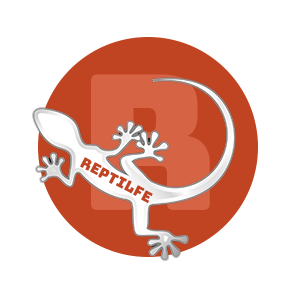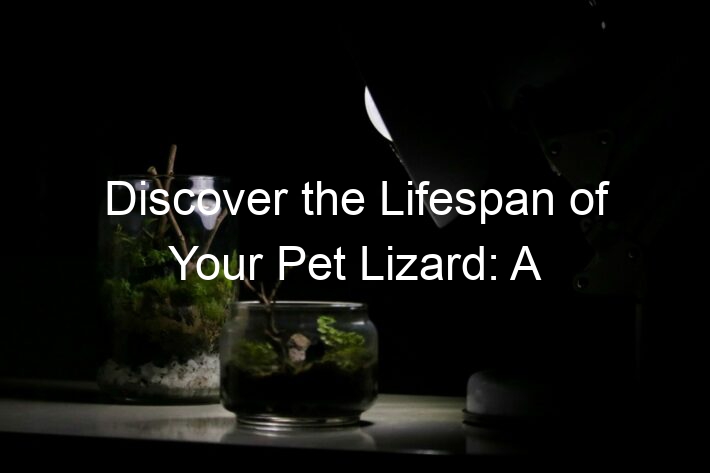Introduction to Bearded Dragon Dental Health
Just like humans, bearded dragons also need to maintain good dental health. It’s an essential part of their overall well-being. In this section, we will delve into the importance of dental health in bearded dragons and some common dental issues they may face.
- Understanding the importance of dental health in bearded dragons
- Common dental issues in bearded dragons
Bearded dragons, like all pets, require regular dental care to stay healthy. Their teeth are crucial for eating, and poor dental health can lead to serious health issues. Neglecting dental care can result in painful conditions that could affect their ability to eat and lead to weight loss or malnutrition. Therefore, understanding and maintaining your bearded dragon’s dental health is vital for their overall well-being.
Bearded dragons can face a variety of dental issues. One common problem is mouth rot, a bacterial infection that can cause inflammation, loss of appetite, and discomfort. Another common issue is tooth loss, which can occur due to injury or poor diet. Bearded dragons can also develop plaque and tartar buildup, leading to gum disease if not treated. Regular dental check-ups can help identify these issues early and ensure your bearded dragon stays healthy.
In the following sections, we will explore more about dragon teeth care, how to keep your bearded dragon’s teeth healthy, and provide some useful dental tips. We will also share some case studies on dental care for bearded dragons and key takeaways on maintaining their dental health. Stay tuned for a comprehensive guide on bearded dragon dental health.
Understanding Dragon Teeth Care
Bearded dragons, or ‘beardies’ as they are affectionately known, are unique creatures with fascinating dental structures. Understanding their teeth can help you ensure their oral health and overall well-being.
Structure of Bearded Dragon Teeth
Let’s delve into the structure of bearded dragon teeth and how they differ from other reptiles. We’ll also explore their growth and shedding process.
- How bearded dragon teeth are different from other reptiles
- Understanding the growth and shedding of bearded dragon teeth
Unlike many other reptiles, bearded dragons have acrodont teeth. This means their teeth are fused to the top of their jaw, making them less likely to fall out. However, this also makes their teeth more susceptible to decay and disease if not properly cared for. Their teeth are small, sharp, and perfect for their omnivorous diet.
Bearded dragons do not shed their teeth like sharks or snakes. Instead, their teeth grow continuously throughout their lives. As they age, their teeth may appear worn or dull due to constant use. Regular check-ups can help monitor their dental health and catch any potential issues early.
Understanding the unique structure and growth pattern of bearded dragon teeth is the first step in ensuring your pet’s dental health. In the following sections, we will discuss how to keep your bearded dragon’s teeth healthy and what signs to look out for that may indicate dental issues.
Signs of Dental Issues in Bearded Dragons
As a bearded dragon owner, it’s important to understand that dental health is a crucial part of your pet’s overall wellbeing. Just like humans, bearded dragons can also suffer from dental issues. Recognizing the signs early can help prevent serious complications. Here are some signs you should look out for:
- Loss of Appetite: Bearded dragons are generally hearty eaters. If you notice that your pet is eating less than usual or showing no interest in food, it could be a sign of a dental problem. Pain or discomfort in the mouth can make eating a challenging task for them.
- Swelling or Discoloration in the Mouth: Regularly check your bearded dragon’s mouth for any abnormalities. Swelling or discoloration could indicate an infection or other dental issues. A healthy bearded dragon’s mouth should be pink and free of any noticeable lumps or discoloration.
- Difficulty Chewing or Swallowing: If your bearded dragon is having trouble chewing or swallowing their food, it could be a sign of dental issues. Watch for signs such as drooling, or food falling out of their mouth while eating. This could indicate pain or discomfort in their mouth or throat.
Remember, early detection of these signs can lead to quicker treatment and a healthier, happier bearded dragon. Regular check-ups with a vet experienced in reptile care can also help keep your pet’s dental health in check.
Keeping Bearded Dragon Teeth Healthy
One of the most important aspects of keeping your bearded dragon healthy is taking care of their teeth. Just like humans, bearded dragons need a proper diet and regular dental care to maintain their dental health. Let’s delve into the details.
Proper Diet for Healthy Teeth
Feeding your bearded dragon the right foods is crucial for their overall health and specifically for their dental health. Let’s explore the importance of a balanced diet and the recommended foods for dental health.
- Importance of a balanced diet
- Recommended foods for dental health
A balanced diet is essential for your bearded dragon’s dental health. It provides the necessary vitamins and minerals that help to keep their teeth strong and healthy. A diet lacking in essential nutrients can lead to dental problems such as tooth decay and gum disease. Therefore, it’s important to provide a variety of foods to ensure they get all the nutrients they need.
Some foods are particularly good for your bearded dragon’s dental health. These include leafy greens, vegetables, and fruits, which are high in vitamins and minerals. Insects like crickets and mealworms are also beneficial as they provide protein and help to naturally clean your dragon’s teeth. However, avoid feeding them hard or sticky foods that can damage their teeth.
Remember, a healthy diet is the first step towards healthy teeth for your bearded dragon. By providing a balanced diet and the right foods, you can help to prevent dental problems and ensure your bearded dragon’s teeth stay strong and healthy.
Regular Cleaning and Check-ups
Keeping your bearded dragon’s teeth healthy involves more than just a proper diet. Regular cleaning and check-ups also play a crucial role. Let’s explore these two important aspects.
- How to Safely Clean Your Bearded Dragon’s Teeth
Cleaning your bearded dragon’s teeth may seem like a daunting task, but it’s actually quite simple. Here’s a step-by-step guide:
- First, gently open your bearded dragon’s mouth. You can do this by lightly pressing on the sides of its jaw.
- Next, use a soft toothbrush or a cotton swab dipped in warm water to gently brush the teeth. Be careful not to brush too hard as this could hurt your pet.
- Finally, rinse your bearded dragon’s mouth with clean water. Make sure to remove all the leftover food particles.
Remember, patience is key. It might take a while for your bearded dragon to get used to this routine. But with time, it will become a normal part of your pet’s care.
- Importance of Regular Veterinary Check-ups
Regular veterinary check-ups are just as important as cleaning your bearded dragon’s teeth. These check-ups can help detect any potential dental issues early on, preventing them from becoming serious problems.
During a check-up, the vet will examine your bearded dragon’s teeth for signs of decay, gum disease, and other dental problems. They will also clean the teeth professionally, ensuring that all the hard-to-reach areas are thoroughly cleaned.
It’s recommended to take your bearded dragon for a dental check-up at least once a year. However, if you notice any changes in your pet’s eating habits or behavior, it’s best to schedule a check-up right away.
In conclusion, regular cleaning and check-ups are essential for keeping your bearded dragon’s teeth healthy. By following these steps, you can ensure that your pet lives a long, happy, and healthy life.
Bearded Dragon Dental Tips
Keeping your bearded dragon’s teeth healthy is an essential part of their overall well-being. Here are some tips to ensure proper dental care for your pet.
Tips for Bearded Dragon Dental Care
Just like humans, bearded dragons require regular dental care to keep their teeth strong and healthy. Here are some tips to help you provide the best dental care for your bearded dragon.
- Using the right tools for dental care
- Creating a stress-free environment during dental care
Using the right tools is crucial for effective dental care. A soft toothbrush can be used to gently clean your bearded dragon’s teeth. Avoid using human toothpaste as it can be harmful to your pet. Instead, use a reptile-safe toothpaste or a solution of warm water and a pinch of salt.
Bearded dragons can get stressed during dental care. To create a stress-free environment, handle your pet gently and speak in a calm, soothing voice. Make sure the room is quiet and free from distractions. Start with short sessions and gradually increase the time as your pet gets used to the process.
Remember, regular dental care is key to preventing dental issues in bearded dragons. By using the right tools and creating a stress-free environment, you can ensure your bearded dragon’s teeth stay healthy and strong.
Preventing Dental Issues
Prevention is always better than cure, and this is especially true when it comes to the dental health of your bearded dragon. By taking certain proactive steps, you can help your pet avoid many common dental issues. Here are two key strategies:
- Proper Enclosure Setup to Prevent Injuries
- Monitoring Your Bearded Dragon’s Behavior for Early Signs of Dental Issues
Bearded dragons are active creatures that love to climb and explore. However, their adventurous nature can sometimes lead to injuries, including dental ones, if their enclosure isn’t set up correctly. Sharp or rough objects can damage their teeth or gums, leading to potential infections or other issues.
To prevent this, ensure your bearded dragon’s enclosure is safe and well-designed. Use smooth, rounded objects for climbing and avoid anything with sharp edges. Regularly check the enclosure for any potential hazards and remove them immediately. This simple step can go a long way in maintaining your bearded dragon’s dental health.
Observing your bearded dragon’s behavior can also help you spot early signs of dental issues. If your pet is refusing to eat, drooling excessively, or showing signs of discomfort while eating, it may be experiencing dental problems. Other signs to watch out for include swelling in the mouth area, bleeding gums, and a foul smell from the mouth.
Regularly monitoring your bearded dragon’s behavior and checking its mouth can help you catch dental issues early. If you notice any of these signs, it’s important to consult a vet immediately. Early intervention can prevent minor issues from becoming major problems and ensure your bearded dragon stays healthy and happy.
Dental Care for Bearded Dragons: Case Studies
Let’s delve into some real-life examples to better understand the importance of dental care for bearded dragons. Here, we will discuss two case studies that highlight the significance of proper dental care and diet.
- Case Study 1: Successful Treatment of a Bearded Dragon with Dental Issues
- Case Study 2: The Impact of Diet on Bearded Dragon Dental Health
Meet Spike, a 4-year-old bearded dragon who developed dental issues due to a lack of proper care. Spike’s owner noticed that he was not eating properly and seemed lethargic. Upon visiting the vet, it was discovered that Spike had developed mouth rot, a common dental disease in bearded dragons.
The vet recommended a treatment plan that included antibiotics and a thorough cleaning of Spike’s mouth. The owner was also advised to maintain a clean and hygienic habitat for Spike. After a couple of weeks, Spike’s condition improved significantly. This case highlights the importance of regular check-ups and immediate action when any abnormal behavior is noticed.
Next, we have Daisy, a bearded dragon who suffered from dental issues due to an improper diet. Daisy’s diet was high in fruit, which led to the development of cavities. Her owner noticed that she was having difficulty chewing and took her to the vet.
The vet recommended a change in diet, reducing the amount of fruit and increasing the intake of vegetables and insects. After a few months of dietary changes and regular dental cleanings, Daisy’s dental health improved significantly. This case emphasizes the importance of a balanced diet for maintaining good dental health in bearded dragons.
These case studies underline the fact that dental care for bearded dragons involves more than just regular cleanings. It also includes maintaining a clean habitat and providing a balanced diet. Remember, a healthy bearded dragon is a happy bearded dragon!
Maintaining Bearded Dragon Dental Health: Key Takeaways
As we conclude our discussion on bearded dragon dental health, let’s recap the most important points. These key takeaways will help you ensure your bearded dragon maintains optimal dental health.
- Importance of Regular Dental Care
- Role of Diet in Dental Health
- Significance of Early Detection and Treatment of Dental Issues
Regular dental care is crucial for your bearded dragon’s overall health. Just like humans, these reptiles can suffer from dental diseases if their teeth are not properly maintained. Regular check-ups can help spot any potential problems early and keep your bearded dragon’s teeth healthy. Remember, prevention is always better than cure.
The diet of your bearded dragon plays a significant role in its dental health. A balanced diet rich in calcium and low in phosphorus is ideal for maintaining strong and healthy teeth. Foods like collard greens, dandelion greens, and squash are excellent choices. Avoid feeding your bearded dragon with food that is hard or difficult to chew as it can cause damage to their teeth.
Early detection and treatment of dental issues can prevent serious health problems in your bearded dragon. Regular dental check-ups can help detect issues like mouth rot, tooth decay, and gum disease early. If left untreated, these conditions can lead to severe health problems, including loss of appetite, weight loss, and even death. Therefore, it’s crucial to address any dental issues as soon as they are detected.
In conclusion, maintaining your bearded dragon’s dental health is not a difficult task. With regular dental care, a balanced diet, and early detection and treatment of dental issues, you can ensure your bearded dragon lives a long, healthy, and happy life.
Conclusion: Healthy Teeth for Happy Bearded Dragons
As we conclude this comprehensive guide on bearded dragon dental health, let’s recap the key points and share some final thoughts on maintaining your pet’s oral health.
- Recap of the importance of dental care for bearded dragons: Dental health is crucial for bearded dragons. Poor dental hygiene can lead to a host of problems, including mouth rot, loss of appetite, and even systemic infections. Regular check-ups, a balanced diet, and proper cleaning techniques can help prevent these issues and ensure your bearded dragon’s teeth remain healthy.
- Final thoughts on maintaining your bearded dragon’s dental health: Maintaining your bearded dragon’s dental health may seem daunting, but with the right knowledge and tools, it’s entirely manageable. Remember, prevention is better than cure. Regular dental care can save your pet from discomfort and disease, and save you from costly vet bills. Keep in mind that your bearded dragon’s dental health is a vital part of their overall wellbeing. A healthy dragon is a happy dragon!
By following the advice in this guide, you can ensure your bearded dragon has a long, healthy, and happy life. Remember, their dental health is in your hands. Let’s make every effort to keep those dragon smiles bright!




